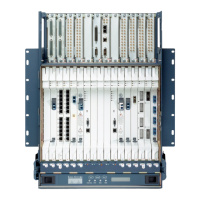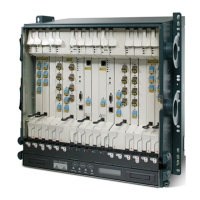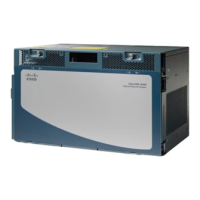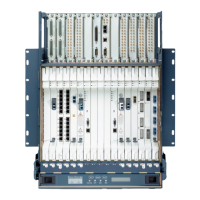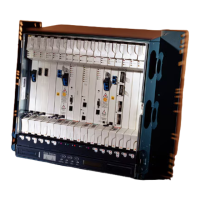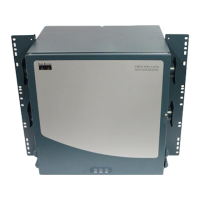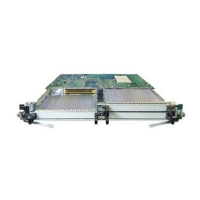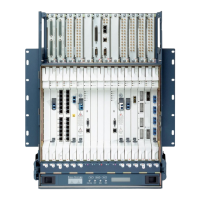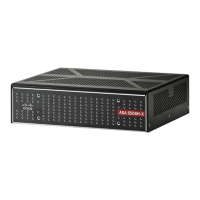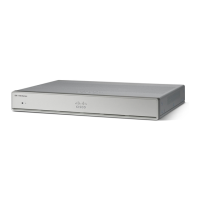2-73
Cisco ONS 15454 Troubleshooting Guide, R8.5
November 2009
Chapter 2 Alarm Troubleshooting
2.7.70 CTNEQPT-PBPROT
Clear the CTNEQPT-MISMATCH Condition
Step 1 Determine what kind of card is preprovisioned in the slot:
a. In node view, click the Inventory tab.
b. View the information for the slot in the Eqpt Type and Actual Eqpt Type columns.
The Eqpt Type column contains the equipment that is provisioned in the slot. The Actual Eqpt Type
contains the equipment that is physically present in the slot. For example, Slot 8 could be
provisioned for an XCVT card, which is shown in the Eqpt Type column, but an XC10G XC10G
card could be physically present in the slot. The XC10G would be shown in the Actual Eqpt Type
column.
Step 2 Complete the “Physically Replace a Traffic Card” procedure on page 2-273 for the mismatched card.
Step 3 If the condition does not clear, log onto http://www.cisco.com/techsupport for more information or call
Cisco TAC 1 800 553-2447.
2.7.70 CTNEQPT-PBPROT
Default Severity: Critical (CR), Service-Affecting (SA)
SONET Logical Object: EQPT
The Interconnection Equipment Failure Protect Cross-Connect Card Payload Bus Alarm indicates a
failure of the main payload between the protect ONS 15454 Slot 10 XC10G card and the reporting traffic
card. The cross-connect card and the reporting card are no longer communicating through the backplane.
The problem exists in the cross-connect card and the reporting traffic card, or the TCC2/TCC2P and the
backplane.
Note This alarm automatically raises and clears when the Slot 8 XC10G card is reseated.
Caution A software update on a standby TCC2/TCC2P can take up to 30 minutes.
Clear the CTNEQPT-PBPROT Alarm
Step 1 If all traffic cards show CTNEQPT-PBPROT alarm, complete the following steps:
a. Complete the “Remove and Reinsert (Reseat) the Standby TCC2/TCC2P Card” procedure on
page 2-272 for the standby TCC2/TCC2P.
b. If the reseat fails to clear the alarm, complete the “Physically Replace a Traffic Card” procedure on
page 2-273 for the standby TCC2/TCC2P.
Caution Do not physically reseat an active TCC2/TCC2P. Doing so disrupts traffic.
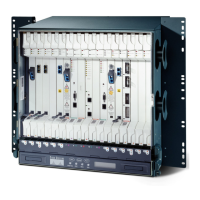
